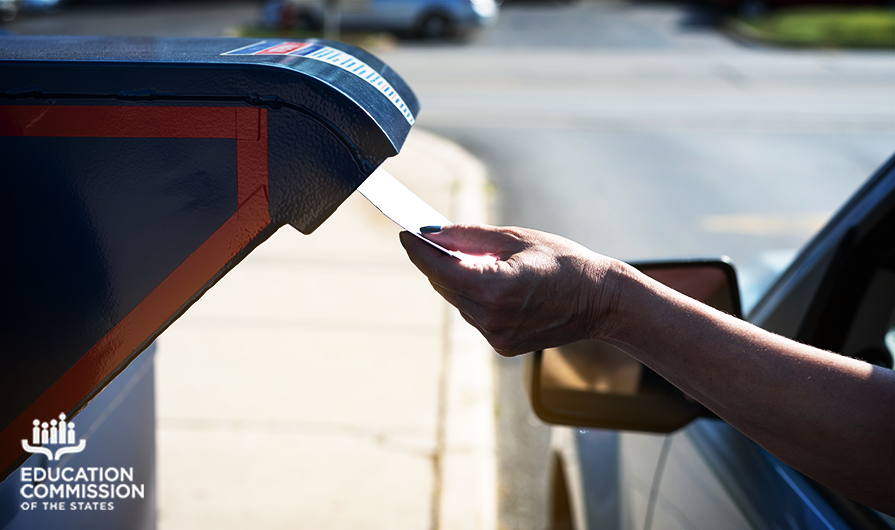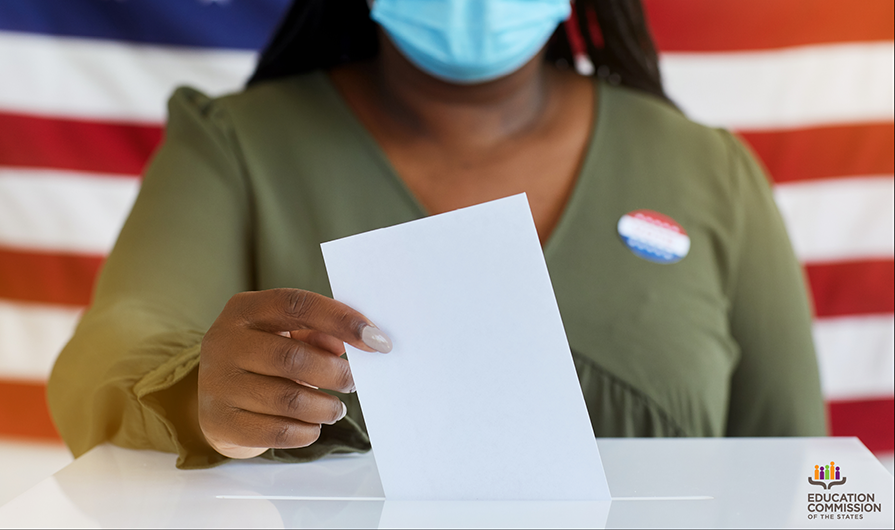The final year of ESSA implementation brought a wave of unprecedented challenges to education systems nationwide. In response to the COVID-19 pandemic’s overwhelming impact on education systems, all 50 states received waivers for their state accountability system requirements, including administration of ESSA-required assessments, from the U.S. Department of Education for the 2019-20 school year. Guidance issued by the department of education under new Secretary Miguel Cardona indicated that states would be required to administer 2021 assessments, with some flexibilities.
In 2020, we also saw states enact legislation allowing state boards or departments to request waivers from future assessment and accountability requirements. States additionally specified how schools under improvement plans would be addressed despite gaps in data caused by waived assessments and other accountability indicators.
For example, North Carolina S.B. 704 changed requirements for the calculation of school performance ratings and the display of school report cards for the 2020-21 school year. Regarding school improvement, the bill indicates that no additional schools or administrative units in need of improvement will be identified based on data from 2019 through 2020. The bill also carries over previous identifications and improvement plans from the 2019-20 school year and ensures that any assistance and intervention provided to schools in need of improvement will continue.
In 2021, states are considering legislation to request additional waivers of assessment and accountability requirements from the U.S. Department of Education. Legislation indicates that if the waivers are not provided again this school year, states will administer assessments but limit the use of those assessment results.
Tennessee policymakers passed S.B. 7001 to exclude data generated by state assessments and alternative growth models used by school districts in the 2020-21 school year from teacher evaluations and certain accountability determinations.
States have also indicated that they will suspend school ratings for the 2020-21 school year. Arkansas, in particular, enacted H.B. 1151 to suspend the public school rating system for the 2020-21 school year.
States are currently considering assessment changes and accountability waivers in addition to legislation. The Montana State Board of Education unanimously voted to support a request from the state office of public instruction to waive standardized testing requirements for the 2020-21 school year and submitted a letter of support to the federal office of elementary and secondary education.
Michigan State Superintendent of Instruction Michael Rice sent a similar request to the U.S. Secretary of Education asking the federal government to provide the state with waivers from ESSA assessment and accountability requirements for the 2020-21 school year since the “typical environment” for such testing was disrupted by the COVID-19 pandemic. Both states sought feedback on these requests through public comment and local district outreach.
For more information about state responses to the COVID-19 pandemic visit the COVID-19 Pandemic Key Issues page and stay tuned for the final post in our school accountability series, which includes considerations for the future of state assessment and accountability requirements.



















